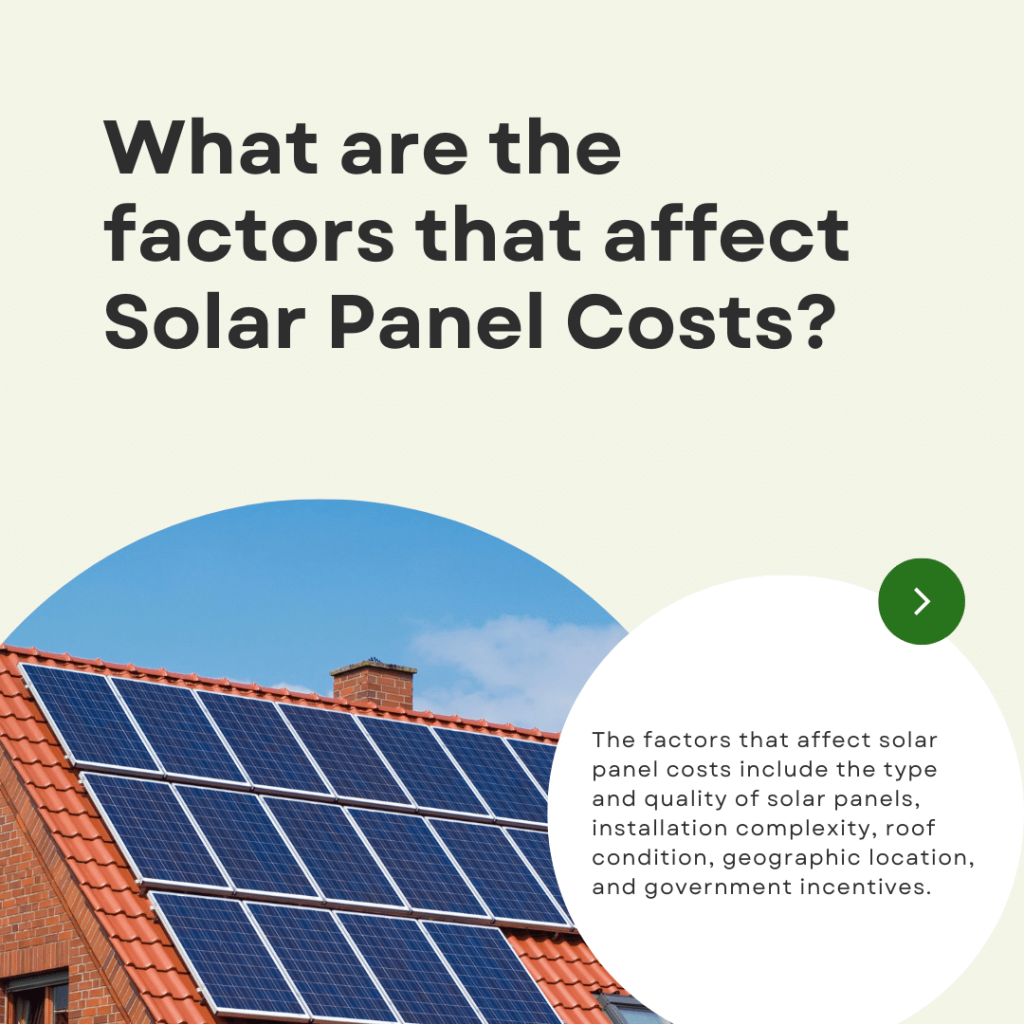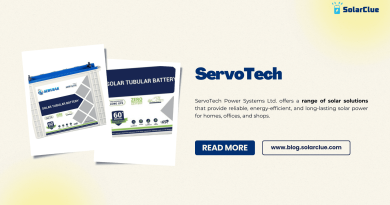Solar Panel Roof Cost: Investing in Sustainable Energy Solutions
Installing solar panels on your roof not only helps the environment but can also save you money in the long run. However, before embarking on such a project, it’s crucial to understand the costs involved. In this blog, we will dive into the world of solar panel roofs and answer the burning question: how much does a solar panel roof actually cost?
Table of Contents
The Factors That Affect Solar Panel Roof Costs

When it comes to determining the cost of a solar panel roof, several factors come into play. These factors include:
1. Size and layout of your roof: The size and layout of your roof will have a significant impact on the cost of installing solar panels. A larger roof may require more panels, thus increasing the overall cost.
2. Type of solar panels: There are different types of solar panels available in the market, with varying costs. The type you choose will impact the initial investment.
3. Quality and brand: The quality and brand of solar panels can vary greatly, and while opting for cheaper panels may seem tempting, it’s crucial to consider long-term durability and efficiency.
4. Location and local regulations: The location of your home can impact the cost of your solar panel roof. Some states or regions offer incentives or rebates, while others may have stricter regulations that increase the overall expenses.
5. Additional equipment: Depending on your energy needs and goals, you may require additional equipment such as batteries for energy storage or a power optimizer to maximize the efficiency of your system. These extras will add to the overall cost.
Understanding the Costs
Now that we’ve covered the factors that affect solar panel roof costs, let’s delve into the estimated expenses involved in installing a solar panel roof.
1. Solar panels: On average, solar panels cost between ₹1,50,000 and ₹2,50,000 for a residential installation, depending on factors such as size, type, quality, and brand.
2. Inverter: The cost of an inverter, which converts DC electricity to AC, can range from ₹75,000 to ₹1,75,000. Additionally, various factors such as brand, capacity, and features influence the final price.
3. Mounting system: To ensure the stability of your solar panel roof, a reliable mounting system can cost anywhere between ₹1,12,500 and ₹2,62,500. Additionally, the final expense depends on the complexity of your roof’s layout.
4. Wiring and electrical work: In ensuring the safe operation of the system, proper wiring and electrical work become crucial. Furthermore, the associated costs for this essential component can range from ₹1,50,000 to ₹3,75,000, depending on the complexity of the installation.
5. Permits and installation: Permit costs can vary, but budgeting ₹37,500 to ₹1,50,000. Installation charges, depending on system size and complexity, typically range between ₹1,50,000 and ₹3,75,000.
6. Battery Storage (Optional): If you choose to include battery storage, costs may range from ₹1,00,000 to ₹1,30,000. Moreover, the final expense is contingent on the capacity and brand of the battery.
7. Maintenance: Maintenance costs are generally low, around ₹7,500.
8. Financing Costs: Financing costs depend on interest rates and associated fees, with variability based on the chosen loan or financing option.
9. Government Incentives and Tax Credits: Government incentives and tax credits can significantly offset costs, making them region-specific. Check with local authorities for available schemes.
The Return on Investment
While the initial cost of a solar panel roof might seem substantial, it’s essential to consider the long-term benefits and return on investment (ROI). Here are a few factors to keep in mind:
1. Energy savings: Solar panels generate clean energy from sunlight, reducing your reliance on traditional electricity sources. As a result, you can significantly reduce your monthly utility bills over time, potentially saving thousands of dollars annually.
2. Government incentives: In numerous regions, governments actively support the adoption of solar energy through various incentives such as tax credits and rebates. These programs play a crucial role in mitigating the initial investment burden and effectively shortening the return on investment (ROI) period.
3. Increased property value: The installation of a solar panel roof can significantly enhance the value of your property. Moreover, residences fitted with solar panels frequently attract the attention of buyers actively seeking energy-efficient and sustainable features. This advantage provides you with a competitive edge in the real estate market, underscoring the appeal and desirability of your property.
4. Environmental impact: By embracing solar energy, you actively contribute to the reduction of carbon emissions, thereby playing a vital role in combating climate change. Moreover, the positive environmental impact of solar panels is immeasurable and holds invaluable significance for the well-being of future generations.
Conclusion
Explore the potential of transforming your roof into a renewable energy powerhouse with SolarClue®! While the expenses associated with a solar panel roof vary, it’s crucial to weigh the long-term financial and environmental benefits. With decreasing installation costs, coupled with government incentives, opting for a solar panel roof has become an appealing and cost-effective choice for homeowners. By investing in solar energy, you not only save money but also contribute to a positive impact on the planet. Don’t hesitate – initiate your exploration now and unlock the sustainable potential of your roof! Embrace SolarClue® for a brighter, cleaner future.
Frequently Asked Questions
The average cost varies depending on factors such as location, system size, and the quality of components. In India, specifically, it can range from around ₹50,000 to ₹150,000 per kilowatt.
Yes, the Indian government provides various incentives, subsidies, and tax benefits at both the central and state levels to promote solar energy adoption, such as the Solar Rooftop Subsidy Scheme.
To determine the size, consider your energy needs, roof space, and sunlight exposure. Furthermore, a solar professional can conduct a site assessment to assist you in determining the appropriate capacity.
Yes, local regulations and approvals may be necessary. It’s essential to check with your local municipal authority or relevant government bodies to understand the permitting process.
Variations can be influenced by the type of solar panels, installation complexity, quality of components, and local factors. Additionally, the availability of subsidies or incentives can impact overall costs.
Financing options include bank loans, solar-specific loans, and government-backed schemes. Some states also offer net metering policies, allowing you to sell excess electricity back to the grid.
The payback period depends on factors such as system cost, electricity savings, and available incentives. In India, it typically ranges from 5 to 7 years.
Solar panels generally require minimal maintenance. Regular cleaning and occasional checks for dust or debris are recommended. Most reputable installers provide warranty and maintenance services.
High-quality panels are designed to withstand diverse weather conditions. Moreover, it’s advisable to invest in reputable brands with proven performance in the Indian climate, ensuring resistance to heat and humidity. This not only guarantees the longevity of the panels but also enhances their overall efficiency.
Yes, many states in India have net metering policies that allow you to feed surplus electricity back into the grid, earning credits or compensation on your electricity bill. Check with your local electricity distribution company for specific regulations.



